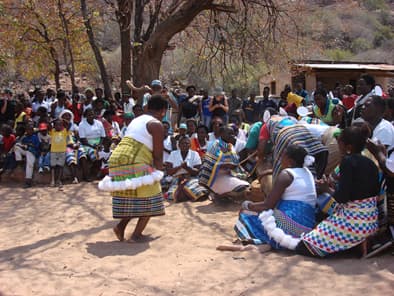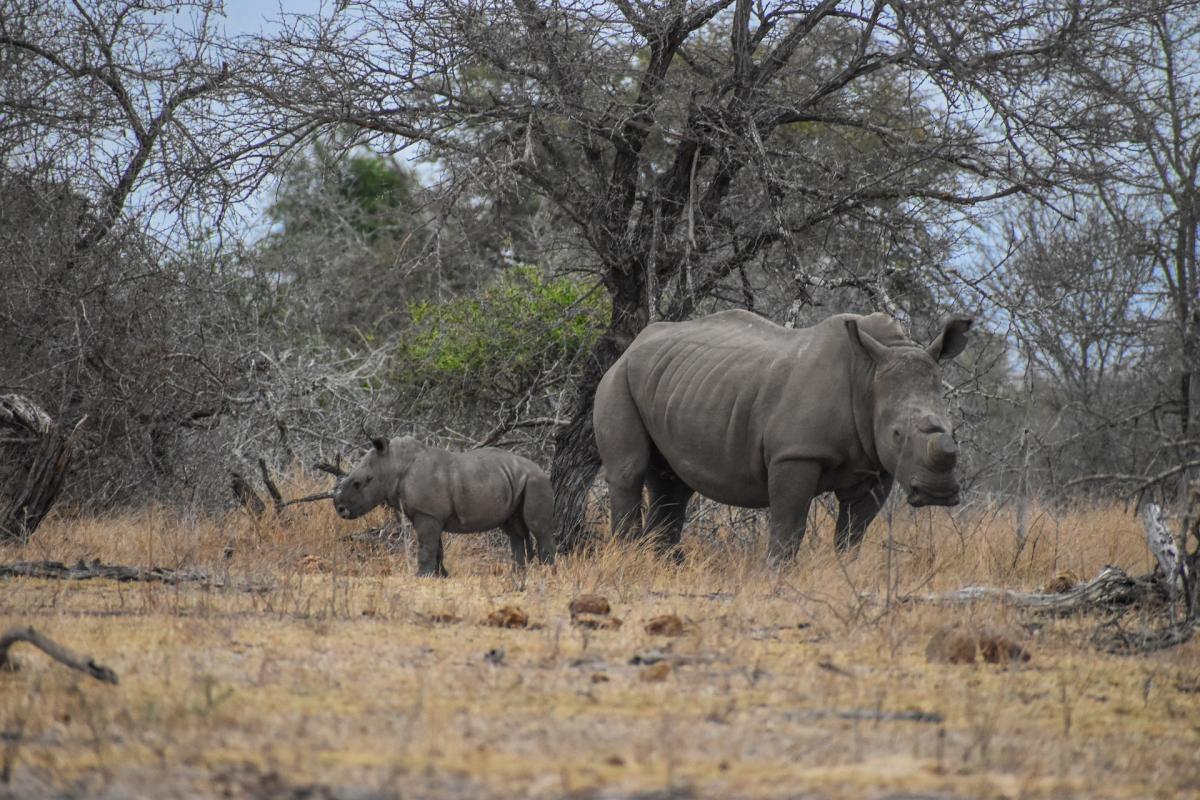
The field program, led by Dr. David Bunn, Professor, and Dr. Melissa McHale, Associate Professor, Department of Forest Resources Management, offers a unique opportunity for students to experience firsthand a variety of decolonized conservation management models.
Throughout the program, students engage in a community-conservation project on tribal land returned via post-apartheid land claims processes; assist a community-managed ecotourism and research base; and work alongside anti-poaching teams comprised of unarmed black women in private reserves. A highlight of the program is a week of fieldwork in the villages of Hamakuya, where students collaborate with a dedicated team of African environmentalists associated with the Tshulu Trust, helping to support their resource management and ecotourism program.

Installation of a chief, HaMakuya. Photo by Susan Harrop-Allen.
Field school activities focus on the social-ecological issues facing communities living on the outskirts of Kruger National Park, one of the world’s most renowned game reserves. Flying into a research base in the southern part of the park, students spend time interacting with community leaders in Kruger’s southern border villages, exploring topics related to land use, land cover change, rewilding in the Greater Kruger National Park region, post-apartheid land restitution, rural resource harvesting, and human-wildlife conflict.

Travelling in open safari vehicles, students are accompanied by South African National Parks scientists to examine some of the current challenges in wildlife management within Kruger, and develop a deeper understanding of the racial and economic complexities surrounding rhino poaching.
By engaging with local communities and fostering long-term partnerships, the field program aims to provide students with a holistic understanding of post-colonial wildlife conservation, while supporting and contributing to more inclusive and sustainable conservation approaches in Africa.